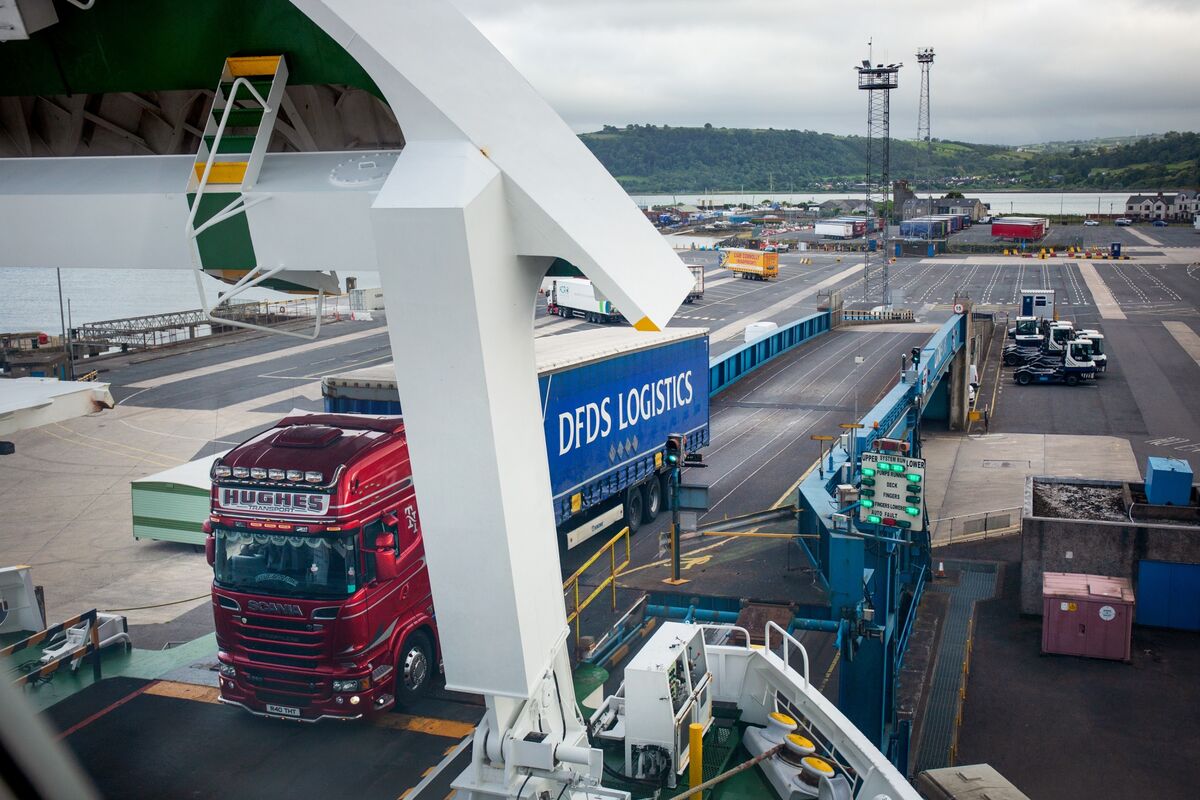Northern Ireland's Economic Vulnerability: Assessing The Impact Of Trump-Era Tariffs On EU Trade

Discover more detailed and exciting information on our website. Click the link below to start your adventure: Visit Best Website. Don't miss out!
Table of Contents
Northern Ireland's Economic Vulnerability: Assessing the Impact of Trump-Era Tariffs on EU Trade
The lingering impact of Trump-era tariffs continues to cast a long shadow over Northern Ireland's already fragile economy. While the immediate threat of a full-blown trade war has subsided, the ripple effects of these protectionist measures, particularly on trade with the European Union, remain a significant concern for businesses and policymakers alike. This article delves into the specific vulnerabilities exposed by these tariffs and examines the ongoing challenges facing Northern Ireland's economic recovery.
The Brexit Backdrop and Tariff Sensitivity:
The unique circumstances of Brexit have exacerbated Northern Ireland's economic vulnerability. The Northern Ireland Protocol, designed to avoid a hard border on the island of Ireland, has created a complex trading relationship with both the EU and Great Britain. This intricate arrangement, coupled with the lingering effects of Trump-era tariffs on various goods, has created a perfect storm for economic uncertainty. Northern Ireland's reliance on trade with the EU, particularly in agricultural products and manufactured goods, makes it exceptionally sensitive to tariff fluctuations. The imposition of tariffs disrupted established supply chains and increased the cost of imported goods, impacting both consumers and businesses.
Specific Sectors Hard Hit:
Several key sectors within the Northern Irish economy suffered disproportionately from the Trump-era tariffs. The agricultural sector, a significant contributor to the region's GDP, faced significant challenges due to increased tariffs on agricultural exports to the US. This led to reduced market access and decreased profitability for farmers and producers. Similarly, the manufacturing sector, particularly those involved in exporting goods to the EU, experienced increased costs and reduced competitiveness due to the added tariff burden. The food processing industry, heavily reliant on both EU and GB imports, faced logistical nightmares and increased costs, impacting its ability to compete in both domestic and international markets.
Long-Term Economic Consequences:
The long-term consequences of these tariffs extend beyond immediate economic shocks. The uncertainty created by fluctuating trade policies discourages investment and hinders long-term economic planning. Businesses are hesitant to commit to expansion or new projects when faced with the potential for sudden changes in tariff regimes. This hesitancy contributes to slower economic growth and potentially increased unemployment. Furthermore, the increased cost of goods resulting from tariffs contributes to inflation, squeezing household incomes and reducing consumer spending.
Looking Ahead: Mitigation Strategies and Policy Responses:
Addressing Northern Ireland's economic vulnerability requires a multifaceted approach. Diversifying export markets to reduce reliance on the EU and US is crucial. Investing in infrastructure and technology to improve efficiency and competitiveness is equally important. The Northern Ireland Executive needs to actively pursue policies that support businesses affected by trade disruptions, providing financial assistance and facilitating access to new markets. Furthermore, fostering closer collaboration between government, businesses, and academia is essential to develop innovative solutions and navigate the complexities of the post-Brexit and post-Trump tariff landscape.
Call to Action: The Northern Ireland economy needs sustained support and strategic planning to overcome the lingering effects of past trade policies. Understanding the specific vulnerabilities and implementing proactive mitigation strategies are vital for ensuring a stable and prosperous future for the region. Further research and policy analysis are needed to fully understand the long-term implications and develop effective solutions. We encourage readers to engage in further discussion on this crucial issue.

Thank you for visiting our website wich cover about Northern Ireland's Economic Vulnerability: Assessing The Impact Of Trump-Era Tariffs On EU Trade. We hope the information provided has been useful to you. Feel free to contact us if you have any questions or need further assistance. See you next time and dont miss to bookmark.
Featured Posts
-
Gaza Strip After Trumps Remarks A Historical Overview
Feb 06, 2025
-
Purdue Vs Iowa Basketball Live Stream Game Time And Tv Info
Feb 06, 2025
-
Bank Of Englands Interest Rate Decision Impact On Uk Mortgages And The Economy
Feb 06, 2025
-
Elf Tote An Schule In Schweden Polizei Ermittelt Schweigt Aber Zu Details
Feb 06, 2025
-
Lakers Vs Clippers 2025 Odds Prediction And Game Time
Feb 06, 2025
